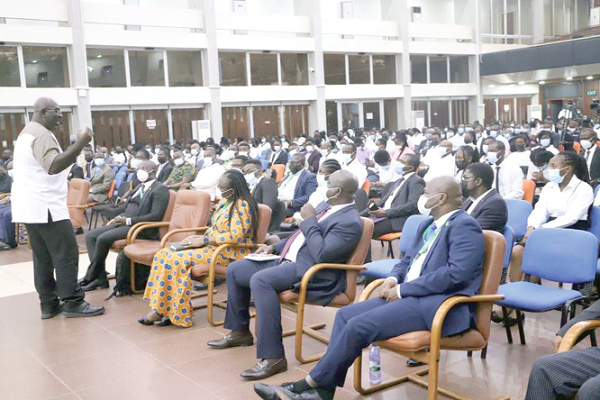
KNUST holds maiden legal scholars public lecture
The Faculty of Law of the Kwame Nkrumah University of Science and Technology (KNUST) has held the maiden “Eminent Legal Scholars Public Lecture” series to encourage intellectual discourse for socio-economic growth in line with the university’s agenda to position itself as the leading legal education provider and to proffer solutions to Ghana’s development challenges.
The lecture series is said to have been tailored to bring together experts from diverse academic backgrounds to discuss topics in areas relevant to emerging trends in legal education.
The programme also aims to build the capacity of faculty members in the interdisciplinary areas through the brainstorming sessions with experts in academia to espouse the critical role of legal education in the nation’s development aspirations.
Lecture series
“It is our hope that the lecture series will grow to become another platform for the exchange of innovative ideas for economic transformation,” said the Vice-Chancellor of KNUST, Professor (Mrs) Rita Akosua Dickson, who chaired the maiden lecture at the Great Hall in Kumasi last Wednesday.
The event was dubbed: “A Very Convenient Marriage: Law and Technology in the Quest for Economic Transformation”.
The Vice-Chancellor said “the rate at which technology is growing demands equal measure in law for transformation and socio-economic growth.”
Prof. Dickson said KNUST was committed to living by its mandate to address the impediments inhibiting the nation’s progress through research, cutting-edge technology and knowledge-sharing.
“Lectures of this nature create the needed environment for intellectual discourse to chart the path for the nation to acquire knowledge from eminent scholars and those in other fields to improve the quality of life of the society,” she noted.
Law, social change
Delivering the maiden lecture, the Co-General Editor of the African Journal of International and Comparative Law, Prof. Kofi Oteng Kufuor, said since time immemorial, law had set the basis for social change such as the advancement in technology.
“When laws have convenient marriage with technology, there is development,” he stated.
He argued that in countries where good laws existed to ensure civil liberty, the people were at liberty to generate the needed ideas for progress.
He urged that Ghana should work hard to protect its laws that guaranteed freedom of speech and expression, strengthen institutions in a democratic dispensation, as well as regulations that underpinned technological innovations.
He explained that that was the way to turn Ghana into a powerhouse in terms of development in order to compete favourably with other nations globally.
